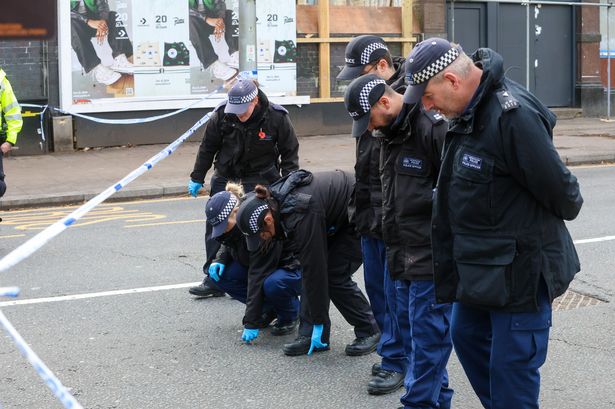The death of Nash Clyne, a Grenadian national residing in Acton, west London, has sent shockwaves through the community, raising concerns about escalating violence and gang activity. Preliminary reports indicate Clyne was pursued by a group of individuals before being fatally attacked. Eyewitnesses describe a chaotic scene, with one assailant reportedly brandishing an axe. While the full details surrounding the incident are still under investigation, the brazen nature of the attack in a public setting has heightened anxieties and calls for increased police presence and community safety initiatives. The incident underscores the urgent need to address the root causes of gang violence and provide resources for vulnerable communities.
The tragedy surrounding Clyne’s death highlights the devastating impact of gang-related violence, leaving families shattered and communities traumatized. The use of a weapon like an axe further amplifies the brutality and senselessness of the attack, raising questions about the accessibility of such dangerous implements and the escalating levels of violence within certain groups. The incident serves as a stark reminder of the complex social and economic factors that contribute to gang membership and the urgent need for intervention programs aimed at diverting young individuals from these destructive paths. Community leaders, law enforcement, and social service organizations must work collaboratively to create a safer environment and offer alternative opportunities for youth at risk.
The investigation into Clyne’s death is ongoing, with authorities working diligently to gather evidence, identify all individuals involved, and determine the precise sequence of events leading to the fatal attack. Forensic analysis, witness testimonies, and CCTV footage will play crucial roles in piecing together the circumstances of the crime. Understanding the motivations behind the pursuit and attack is paramount, as it can shed light on the underlying dynamics of gang activity in the area and inform targeted interventions. The investigation must also consider the potential influence of external factors such as drug trafficking, territorial disputes, or personal vendettas, which can often fuel violent confrontations.
The impact of Clyne’s death extends beyond the immediate family and friends, rippling through the wider community and raising concerns about the perceived safety of Acton residents. Incidents of this nature can erode trust in law enforcement and create an atmosphere of fear and uncertainty. Community leaders are calling for increased police patrols and a more visible presence to reassure residents and deter future acts of violence. It is crucial that law enforcement engages in proactive community policing strategies, building rapport with residents, gathering intelligence, and addressing the specific concerns of the community. This collaborative approach can help foster a sense of security and empower residents to play an active role in crime prevention.
Beyond increased policing, addressing the root causes of gang violence requires a multi-faceted approach involving various stakeholders. Social programs aimed at providing educational opportunities, job training, and mentorship can offer alternative pathways for young people susceptible to gang recruitment. Early intervention programs that target at-risk youth can help identify and address the underlying social, economic, and psychological factors that contribute to gang involvement. Community centers and youth organizations can play a vital role in providing safe spaces, recreational activities, and positive role models for young people. It is essential to invest in these community-based initiatives to create a supportive environment that fosters resilience and empowers young individuals to make positive life choices.
The death of Nash Clyne serves as a tragic reminder of the devastating consequences of gang violence and the urgent need for comprehensive solutions. While the pursuit of justice for Clyne and his family is paramount, the incident also presents an opportunity for reflection and action. It is imperative that community members, law enforcement, social service organizations, and policymakers work together to address the complex web of factors that contribute to gang-related crime. By investing in prevention programs, strengthening community partnerships, and promoting positive youth development, we can create a safer and more equitable society for all. The memory of Nash Clyne should serve as a catalyst for change, inspiring us to work tirelessly toward a future free from the scourge of violence and where all individuals have the opportunity to thrive.














